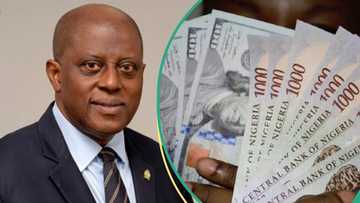History of the Universal Basic Education in Nigeria
The Nigerian federal government introduced the Universal Basic Education (UBE) programme in 1999. Since the programme began, there have been some improvements to Nigeria’s education structure; however, this has been marginal, and the scheme has been plagued with problems including inadequate funding and poor planning.
The Universal Basic Education (UBE), was introduced by the Nigerian federal government in 1999.
The scheme was introduced with the aim of providing free, universal and basic education for every Nigerian child between the ages of 6 and 15.
READ ALSO: EFCC declares war against human traffickers
Legit.ng notes that the scheme earmarked children between the age of 3 to 5 for the Early Children Care and Development Education.
Children between the ages of 6 and 11 were to undergo the primary school education; while those between the ages of 12 and 14+ were to undertake the junior secondary school education.
The basic aspect of the UBE connotes the very foundation of education, which all other levels are built upon.
The universal aspect of it connotes the fact that education is something vital to people all over the world.
The ‘free’ aspect of the scheme refers to the need for every child to have access to education, regards of financial status.
Since the programme began, there have been some improvements to Nigeria’s economic structure; however, this has been marginal.
This was evident in the fact that as at 2015, UNESCO ranked Nigeria 103 out of 118 countries, in its Education for All Development Index.
The index takes various aspects of education into consideration; including quality of education, gender parity, universal primary education, and also adult literacy.
One of the main challenges the government has faced in carrying out the UBE scheme since inception, has been the lack of adequate funding.
Given its aims and objectives, the issue of how the UBE scheme is to be funded is of major importance.

Read also
“Interests of consumers”: Airtel CEO finally reacts to approved increase in call, data tariff
Unfortunately though, the funds which have been allocated by successive governments to fund the programme have not been commensurate with the demand of the scheme to realize its lofty objectives; and this had led to a poor implementation of the policy.
One of the reasons why funding has been a major challenge in implementation of the UBE scheme is because of the issue of corruption which has eaten deep into the fabric of the Nigerian governmental structure.
In 2017, the Muhammadu Buhari administration earmarked the sum of N92 billion for the UBE scheme.
However, corrupt officers have been known to divert funds earmarked for developmental programmes, and this has led to poor implementation of vital national policies.
In various states, teachers have often gone on strikes to protest non-payment or poor payment of salaries; even as infrastructures are left in dire need of repair.
There has also been poor planning associated with the implementation with the programme, leading to inaccurate figures about the numbers of school children to undertake various levels of the programme.
Despite these challenges however, the Universal Basic Education remains a vital component of societal growth; and as such, it behooves the Nigerian federal government to find ways to make the scheme better so as to provide a quality basic education for every Nigerian child.
PAY ATTENTION: Install our latest app for Android, read best news on Nigeria’s #1 news app
Meanwhile, Legit.ng previously reported about the alarming decline in the quality and standard of education in Nigeria.
The leading causes for the poor state of education in the country and possible ways out, were also highlighted.
Nigerians express mixed feelings as JAMB reduces admission cut-off to 120 - on Legit.ng TV:
Source: Legit.ng




